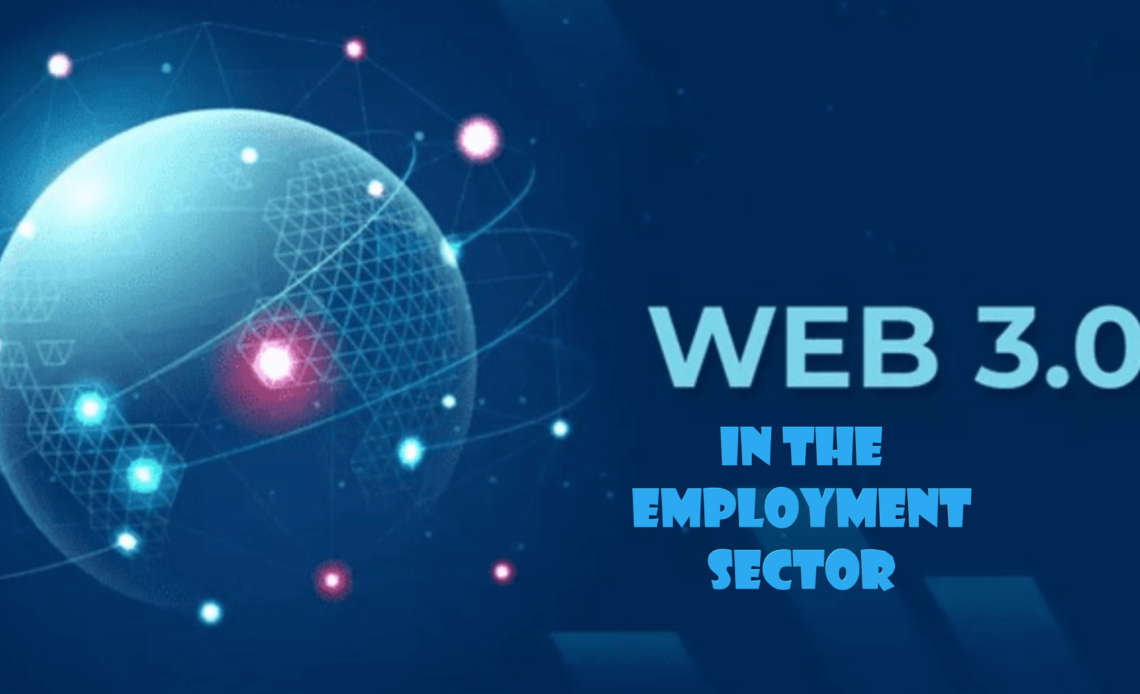The recent workforce decentralization and the shift to remote and hybrid working sets the foundation for new technologies such as blockchain and metaverses to create more efficient, connected, and immersive environments.
While Web 2.0 revolutionized online interaction, Web 3.0 is a paradigm shift to a decentralized virtual world founded on blockchain technology, transforming how we work and live. The high demand for remote and hybrid work, and the necessity to improve employee experience, have led organizations to incorporate these emerging technologies to appeal to the modern employee and consumer.
Organizations, leaders, and employees leverage innovative Web 3.0 technologies, integrating them into real-world applications and strategies to improve the employment sector experience and gain a competitive advantage in today’s marketplace.
Web 3.0 has numerous benefits across various industries. This article explains what Web 3.0 is and highlights some of its implications in the employment sector.
Web 3.0 Explained
Web 3.0 is a decentralized World Wide Web based on blockchain technology and incorporating token-based economics, contrasting Web 2.0, where data and content are centralized in a small group of companies, sometimes called “Big Tech.” Web 3.0 is a possible solution to concerns about the over-centralization of the web while providing increased data security, scalability, and privacy for users and mitigating the influence of large technology companies.
Web 3.0 is “the internet owned by the builders and users, orchestrated with tokens.” A token denotes a deed of ownership for a small piece of the internet and associated rights. It is a vision of the internet with a wide distribution of privilege and power, an idea revolving around decentralization and incorporating transparent digital ledgers called blockchains and related technologies, such as digital currencies (crypto) and non-fungible tokens (NFTs).
Decentralized autonomous organizations (DAOs) and Decentralized finance (DeFi) are among the key concepts surrounding the Web 3.0 vision. Self-sovereign identity allows user identification without relying on a third-party authentication system.
Web 3.0 In Employment Sector
Enhanced Workplace Experience
Web 3.0 offers a more personalized, enriched, and productive workplace, given that these technologies can tailor the experience to everyone’s needs, focusing on efficiently and effectively completing tasks. Often, tasking requires working across multiple systems, which is significantly boosted by integrating web 3.0 technologies into applications. While accelerating digital transformation, Web3 customized and high-value-added services and products to people and businesses. Blockchain technology and decentralization will alter how people view the workplace and how individuals manage specific tasks.
Enhanced Collaborations
Humans are social creatures centered around relationships. Advanced Web 3.0 technologies do not replace human interaction but enhance it.
The metaverse and VR technologies facilitate collaboration by enabling people to interact in the same virtual room, regardless of physical distance. For example, Meta Horizon Workrooms, a VR workspace product by Meta, is designed to improve people’s ability to collaborate, communicate, and connect remotely.
The idea of remote collaboration promotes the feeling of separation and an evident and poignant disconnection. But with Web 3.0 technologies like AR and holographic interactions, people move beyond flat experiences to come together in more natural and authentic ways, removing isolation barriers and allowing employees to be fully present and fully engaged in the employment sector.
Effective and Accurate Talent Sourcing and Acquisition
Web 3.0’s blockchain-based value passport benefits employers and individuals due to the ability to maintain and control access to a comprehensive, trustworthy blockchain-based record of a candidate’s education, skills, training, experience, and workplace performance. Providing access to value passports to potential employers enables individuals to turn their skills, training, and expertise into genuine employment market value. By using analytics and AI, companies accurately and effectively match candidates to their roles. Blockchain additionally provides a more secure and trustworthy way of sharing personal information.
Crossborder payments and Mobility
Enhanced Crossborder Payments and Mobility
Web 3.0 enhances the management of payments, salary, and expenses across borders, including international expenses and tax liabilities in the employment sector. Initial steps into blockchain for multinational businesses include creating block-chain based corporate coins for transferring value across businesses and supply chains globally without friction and additional costs of third-party reconciliations. Blockchain technology redefines cross-border expenses by embedding logic and spending levels, which require complex and cumbersome multi-signature processes and systems. Blockchain verification is critical in cross-border mobility, given the significant data collection necessary to ensure employees’ compliance with tax laws across different jurisdictions.
Productivity Gains
The ability to accurately match people’s skills and performance to employment sectors boosts productivity across all industries. Clarity on an individual’s skills and experiences places people in their optimum productivity areas. Web 3.0 technologies also reduce the heavier recruiting burden for smaller businesses. Additionally, Web 3.0’s further automation of data-heavy and time-intensive processes, such as payroll and VAT, help in reducing the administrative burden.
Fraud Prevention, Cyber Security, and Data Protection
Web 3.0 boosts cyber security and fraud prevention in the employment sector and protects employees’ and contractors’ personal information. HR accrues many benefits from blockchain, given its involvement in high-volume financial transactions and its responsibility over sensitive personal information. Blockchain’s consensus verification model alleviates fraud and data misuse.
Final Thought
While converging technologies slash the lifespan of Fortune 500 companies, bring on the rise of vast new industries, and transform the employment sector, Web 3.0 is changing how we work and with whom and where we work.
Web 3.0 is still in its infancy but promises a bright future, with Citi predicting that the metaverse will be worth $13 trillion by 2030. Large global companies are seizing the opportunity, and those that ignore it will be left behind. Facebook, for example, changed the company name to Meta, indicating a shift to new technologies and perhaps a statement about what the future holds.
In a recent study with SoFi, 42% of employees opt to receive performance rewards in the form of NFTs. Many Web 3.0 applications are yet to be conceived, but developers and leaders are experimenting and piloting their solutions.

